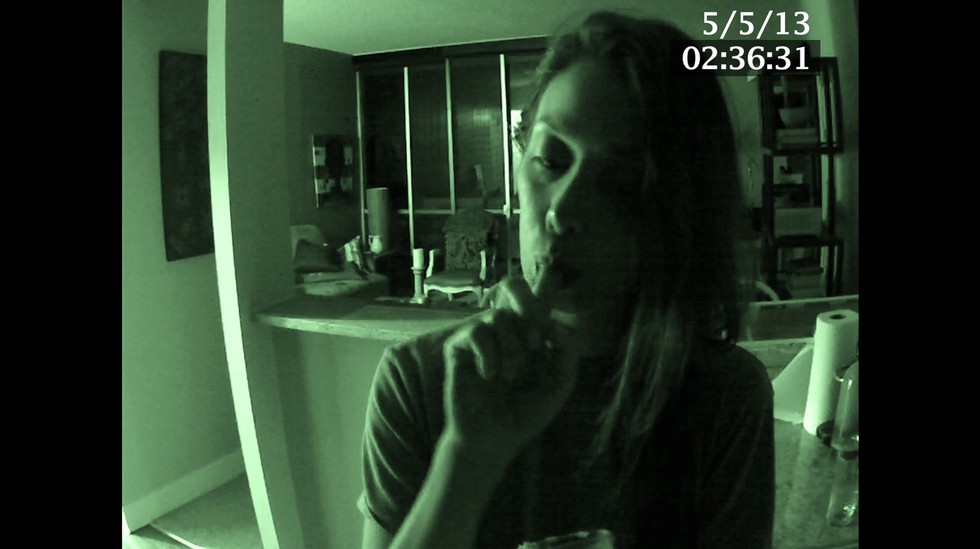Alexandra Liveris is currently an MFA Candidate in Stanford University’s Documentary Film Program. In 2013 she directed three shorts and is currently directing a documentary under the working title “A Church at Ground Zero,” about the struggle to rebuild the only religious site destroyed on 9/11. Prior to making films, she worked for the Clinton Global Initiative and at Charlie Rose. She is a 2013 Robert Flaherty Film Seminar Fellow. Liveris graduated in 2007 from Tufts University with a degree in International Relations. (Press materials)
The 8-minute “Nocturnity” will debut at the Tribeca Film Festival on April 18.
Please give us your description of the film playing.
Young filmmaker Alexandra Liveris suffers from a dire and bizarre strain of insomnia called Nocturnal Sleep-Related Eating Disorder. Along with one million other Americans, she gets up in the middle of the night, multiple times, and unconsciously eats fatty foods, with little to zero recollection the next day, rendering her body and mind a complete wasteland. After failed attempts to find a cure from the top minds in the medical community, she tracks her sleepwalker’s journey with surveillance cameras. When she is confronted with the image of her sleepwalking self, her sense of identity is turned inside out.
What drew you to this story?
This is a personal documentary about a rare disorder that I have dealt with from the age of seventeen. There is very little research being conducted on this disorder, and I have always wanted to understand if its onset is psychologically or biologically driven. This film and the experiment conducted within the film helped me get one step closer to answering that question.
What was the biggest challenge?
I appear in three different “forms” in this short documentary: in the video diary speaking directly to the camera, in observationally shot footage, and in the surveillance images. As the editor, director, and subject of the film, I had to live both inside and outside of my own mind involving a very complex psychological issue. It was a great and rewarding challenge to figure out how to have these three different selves work in concert with each other.
What advice do you have for other female directors?
Fearlessly follow subject matters that are important to you and elicit advice from trusted sources at every stage of the creative journey.
What’s the biggest misconception about you and your work?
Documentary film is ultimately the creative treatment of actuality. It’s nonfiction work that will never be void of subjectivity.
Do you have any thoughts on what are the biggest challenges and/or opportunities for the future with the changing distribution mechanisms for films?
I think for small-budget independent filmmakers, it is about finding a balance between maintaing a hype around your film while allowing it to reach as many audiences as possible through multiple platforms.
Name your favorite women directed film and why.
Clio Barnard’s docudrama The Arbor for her inventive and layered approach to illuminating the life of both a playwright and her work through using lip-synced reenactments that utilize the voices of her real-life characters.







